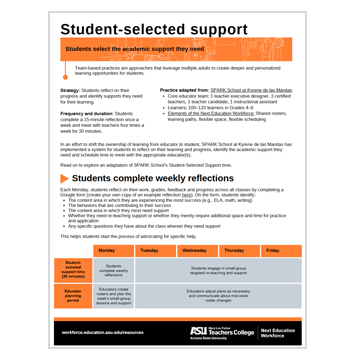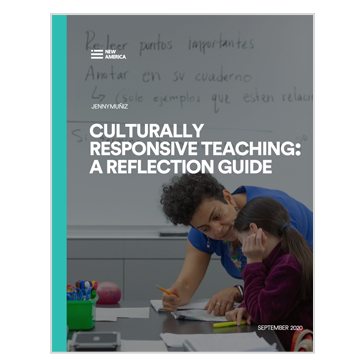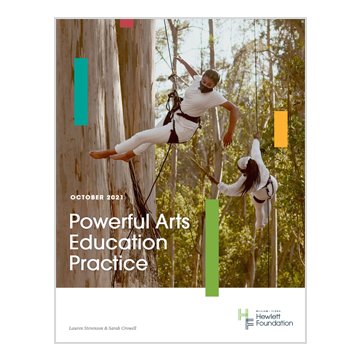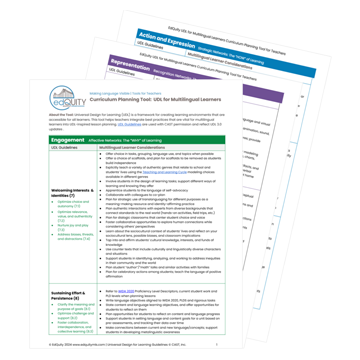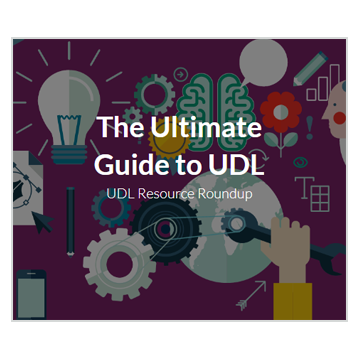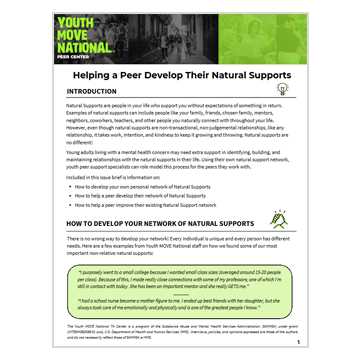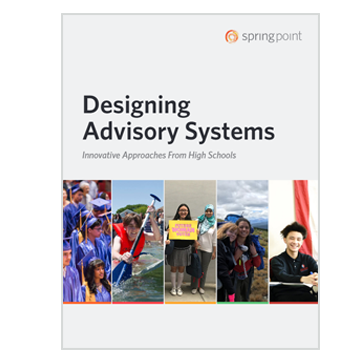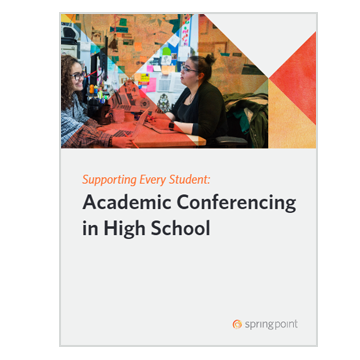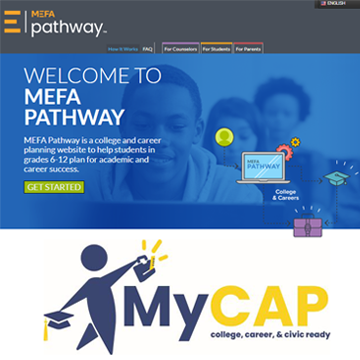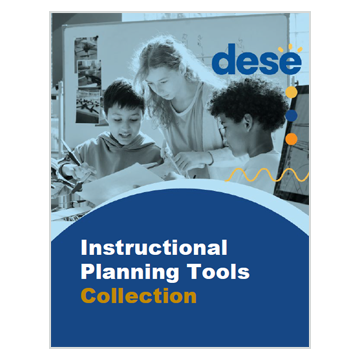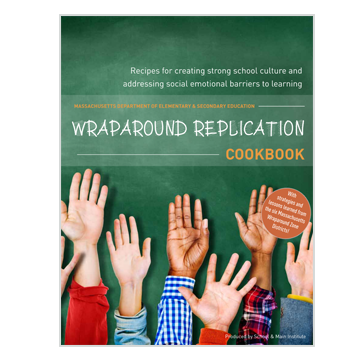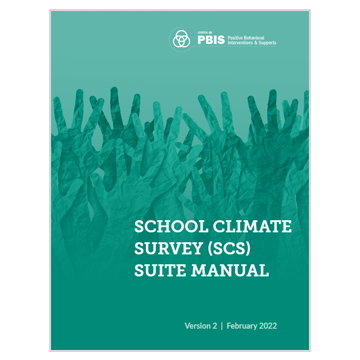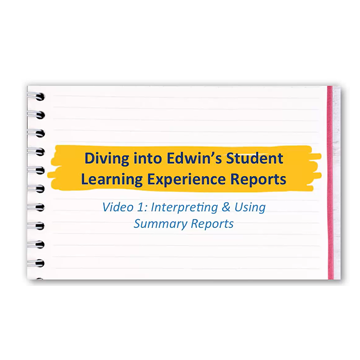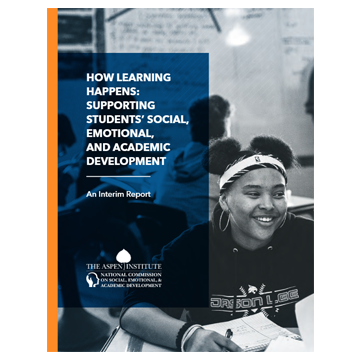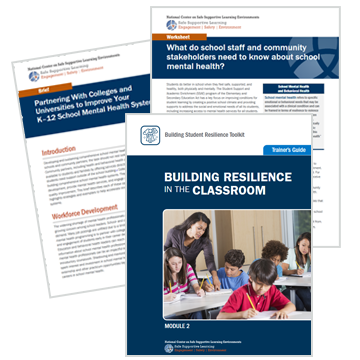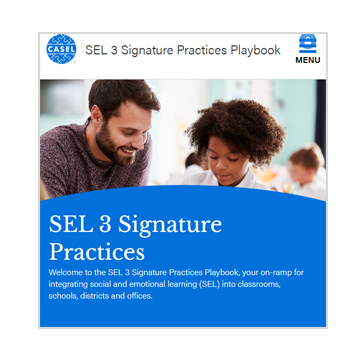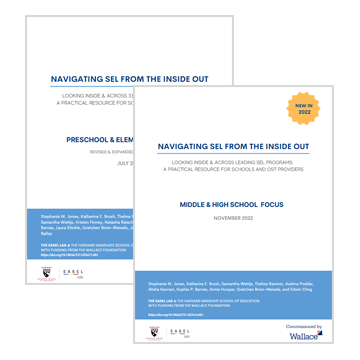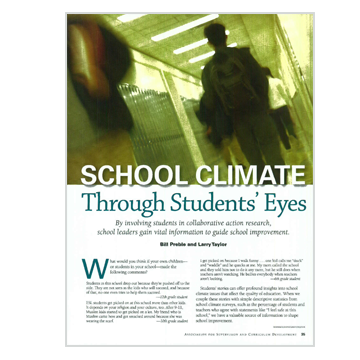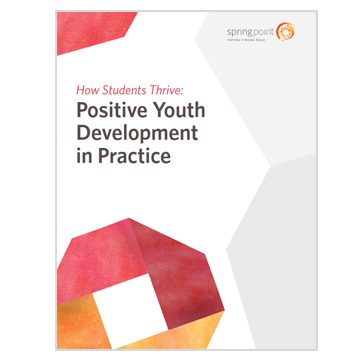Resource Profiles
New Resource Search
← Return to Find Resources | MTSS
Resource Results
Student-Selected Support
Learn how to implement a secondary support strategy where students reflect on their progress and select the 30-minute Student-Selected Support periods they need four days a week.
Culturally Responsive Teaching: A Reflection Guide
This resource provides a framework of 8 competencies for culturally responsive teaching, with reflection questions educators can use to refine their practice.
10 Dimensions of Powerful Arts Education Practice
This short, thoughtful resource provides a great reminder of the role arts can play in your school community. Each of the 10 dimensions includes examples of practices you might see or feel.
UDL for Multilingual Learners Tool
This helpful tool illustrates how educators can crosswalk UDL 3.0 guidelines to research-backed practices for supporting multilingual learners. it’s not an exhaustive look but is a great jumping off point which teachers can customize for their students and content area.
The Ultimate Guide to UDL
This great round up of resources compiled by Katie Novak, a UDL leader in Massachusetts and beyond, covers a huge amount of territory: UDL basics and video explainers, common misconceptions, a UDL implementation rubric, a UDL assessment flowchart, what to look for to evaluate UDL implementation in classrooms, recommended books and much more.
Youth Move National: Mental Health Support Tools
Youth MOVE is a youth-driven, chapter membership organization focused on improving systems and services that support positive growth and development. This includes training and professional development for mental health workers, with a focus on strengthening youth voice, peer support, and leadership in systems of care. Other tools and resources are designed specifically for young people, to use themselves or in their role as a peer supporter or advocate.
Designing Advisory Systems: Innovative Approaches from High Schools
Learn how five different schools approach the challenge of creating meaningful advisories for high school students.
Supporting Every Student: Academic Conferencing in High School
This guide helps educators put high school students at the center of conferencing. Tools include a student engagement matrix and strategies for engaging students who are in different places, conference planning and student preparation steps, a conference meeting protocol, coaching tips, and examples.
MyCAP (My Career and Academic Plan) and MEFA Pathway
Use this collection of guidance and online tools to help students grades 6-12 explore options and plan for life after high school.
DESE Instructional Planning and Observation Tools Collection
Use these tools to support deeper learning grounded in grade-level, real-world, relevant, and interactive learning. Tools in the classroom support observations, lesson and unit unpacking, and student work review.
Wraparound Replication Cookbook: Recipes for Creating Strong School Culture and Addressing Social Emotional Barriers to Learning
This cookbook is the result of the Massachusetts Wraparound Zone Initiative, an initiative aimed at helping schools tackle both academic and non-academic barriers to student learning, and includes recipes for strengthening school culture, creating strong student success teams, engaging family members as partners, building community partnerships and coalitions, and much more.
The School Climate Survey Suite
The School Climate Survey Suite is a set of four multidimensional surveys to measure student, teacher, administrator, faculty, and family perceptions of school climate. The surveys are brief, reliable, and valid for assessing perceived school climate among students in Grades 3-12. The manual was updated 2022 (Version 2).
Student Learning Experience Report
This EDWIN report helps school and district leaders understand equity gaps in students’ learning experiences with effective educators; for example, the report shows how often students had assignments with different types of teachers over the past one to five years. This series of three videos and related guidance explain how the report works and how to interpret and use the data.
How Learning Happens: Supporting Students’ Social, Emotional, and Academic Development
This landmark consensus report issued by the National Commission’s Council of Distinguished Scientists unites scholars from multiple fields to affirm the interconnectedness of the social, emotional, and academic components of learning.
National Center for Safe Supportive Learning Environments Resources
The National Center on Safe Supportive Learning Environments (NCSSLE) is a training and technical assistance center funded by the U.S. Department of Education to address factors that result in disciplinary problems, poor conditions for learning, and educator burnout. NCSSLE has developed a number of tools, online modules, and other materials related to these topics and more.
SEL 3 Signature Practices Playbook
Integrate social and emotional learning throughout the day, in classrooms, during professional learning, and in meetings. This guide focuses on three areas, with 10-15 specific examples for each: Inclusive Welcome, Engaging Strategy, and Intentional Close.
Navigating SEL from the Inside Out - SEL Program Guides
There are many social emotional learning programs out there! These two guides provide detailed information for more than 40 SEL programs for PK-12 school and out-of-school time settings.
PEAR Holistic Student Assessment (HSA)
The PEAR Holistic Student Assessment (HSA) is a universal social-emotional assessment tool (student survey) that can help you better understand each student's unique strengths and needs.
Student School Climate Leadership Teams
A lot of school climate and culture is "what's happening when adults are busy doing other things." Use these resources from the Center on School Climate & Learning to involve a variety of students (not just natural or known leaders) in gathering student voice and pinpointing aspects of school climate/culture that need work and strategies for addressing them.
How Students Thrive: Positive Youth Development in Practice
School culture and climate is a critical component to any school. This paper can help a school or district explore how to design schools around young people in order to support them on their positive youth development, including the importance of caring, trusting, and supportive relationships, high expectations, voice, choice and contribution, intentionally engaging learning experiences and consistency.
← Return to Find Resources | MTSS
